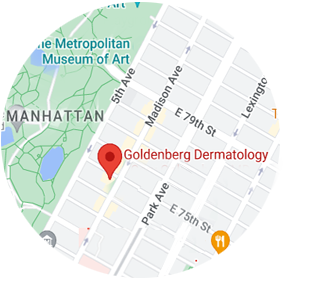What is Psoriasis?
Psoriasis is a multifactorial genetic condition in which inflammation is increased and skin cells turn over at a higher than normal rate. On the outside, the increased scale is caused by rapid growth of skin cells. This in turn causes skin cells to accumulate on the surface of the skin and cause silvery scale. On the inside, there is an increase in inflammation. This inflammation causes the skin to be red and inflamed. This likely causes the itching and burning commonly seen in psoriasis.
The most common type of psoriasis is called psoriasis vulgaris (common psoriasis). These patients have insolvent of the skin extensors, such as knees and elbows, scalp and buttocks. However, every inch of skin can be covered with psoriasis in severe cases. Other types of psoriasis include inverse psoriasis, guttate psoriasis, pustular psoriasis and erythrodermic psoriasis
The inflammation that is seen in the skin of psoriasis may also be occurring in joints, causing psoriatic arthritis. It’s also been shown that patients with psoriasis are at an increased risk of heart disease, stroke, diabetes, insulin resistance, metabolic syndrome, depression, smoking and alcohol abuse.
Psoriasis is a chronic condition for which there is no cure. However, multiple treatment options exist for patients with a wide range of disease, from mild to severe. These include:
- Diet and lifestyle modification
- Topical creams & ointments
- Light therapy
- Oral medications
- Biologics injections
Creams and ointments are the most commonly used option by people. Light therapy has been proven to work by slowing cellular growth and nullifying the effects of psoriasis. Oral medications can help with moderate disease with a good safety record. Injectable biologic drugs target specific parts of the immune system effected by psoriasis and are administered through injections. These medicines are safe and effective for both, psoriasis and psoriatic arthritis.
To understand your psoriasis better and to find the right treatment for it, book your consultation today with Dr. Gary Goldenberg at one of his New York dermatology offices.












Leave a Reply
Want to join the discussion?Feel free to contribute!